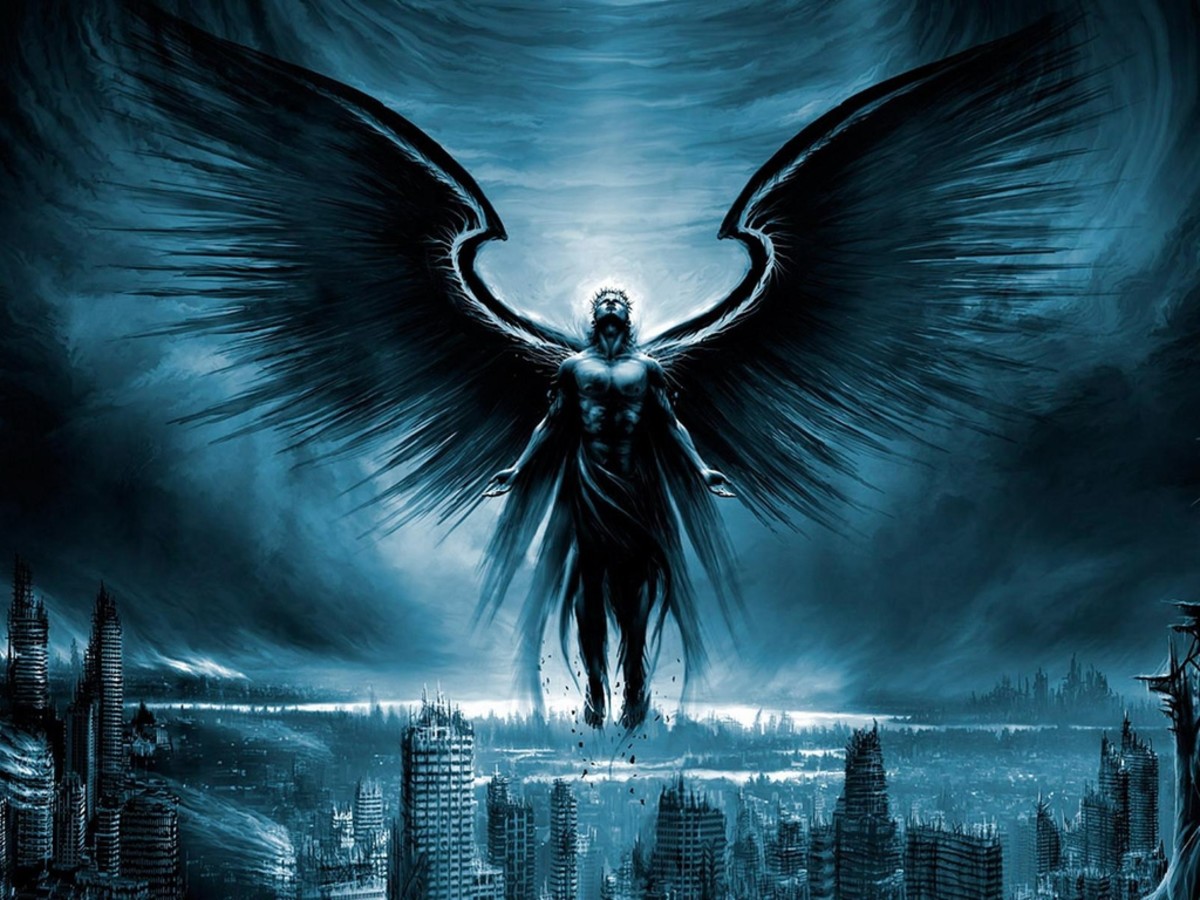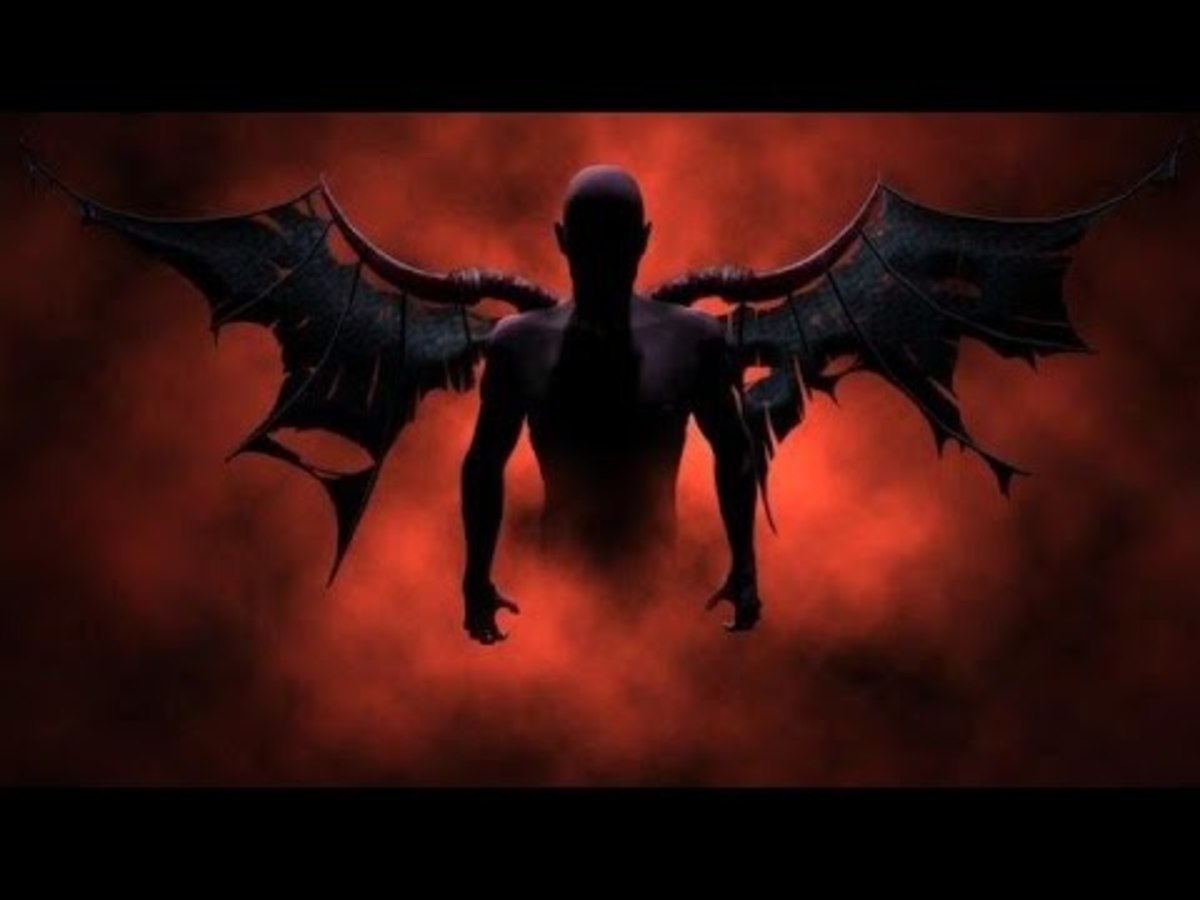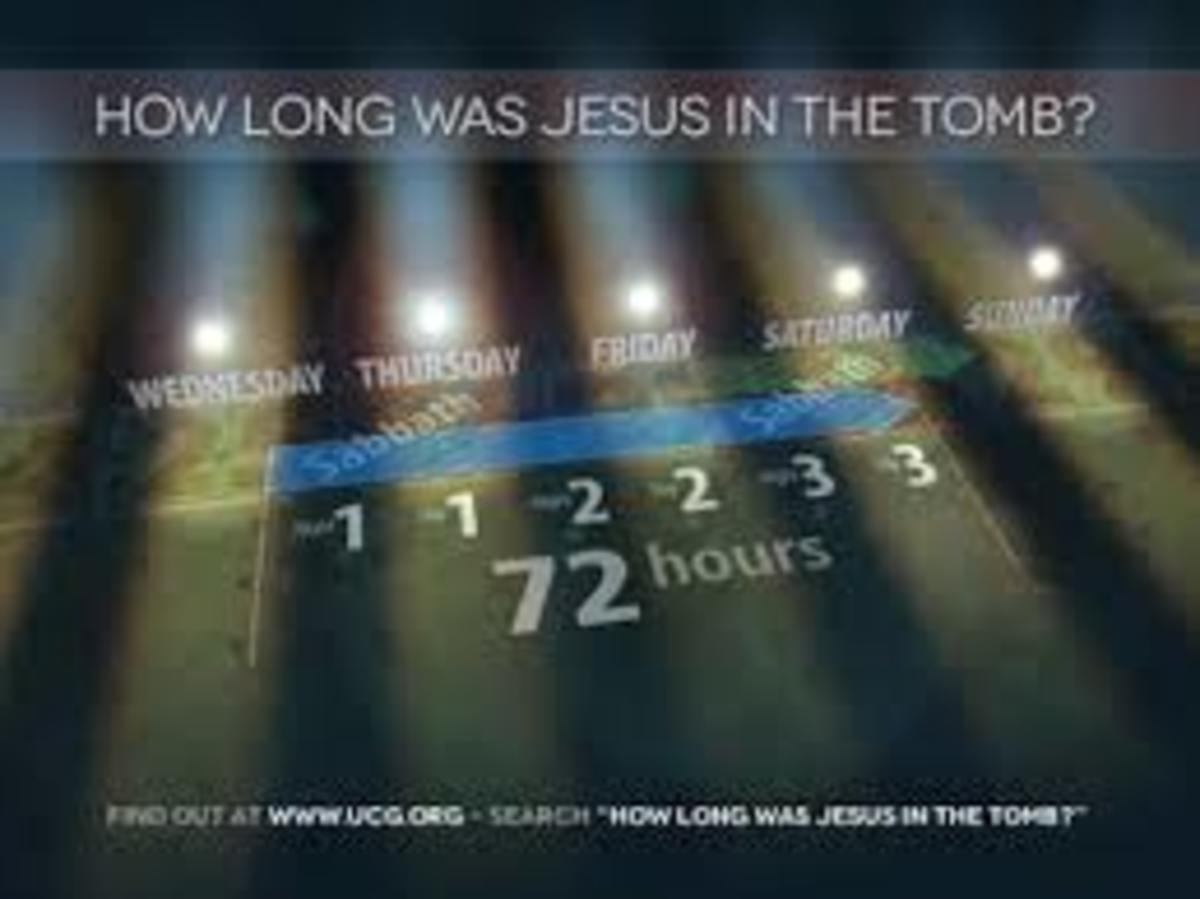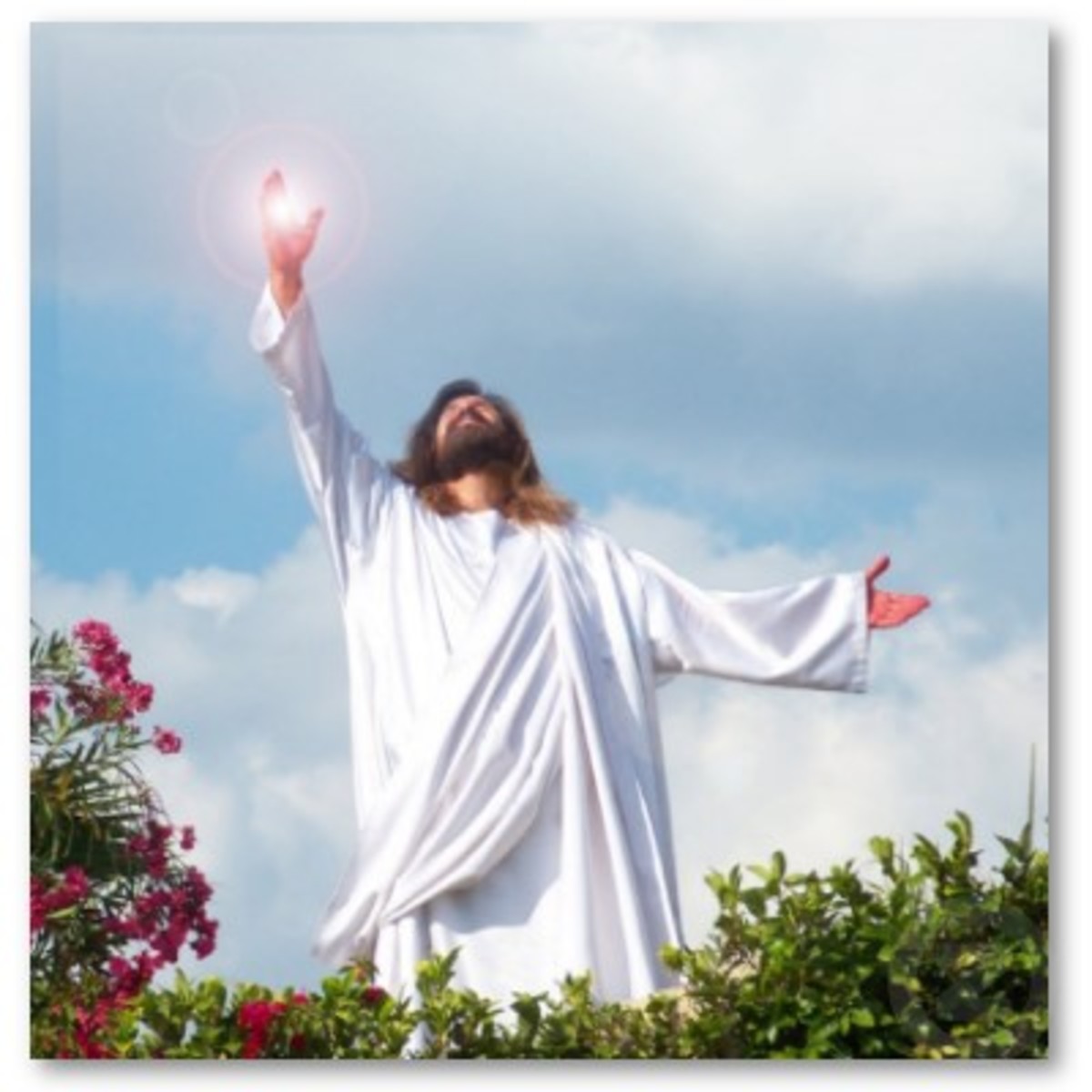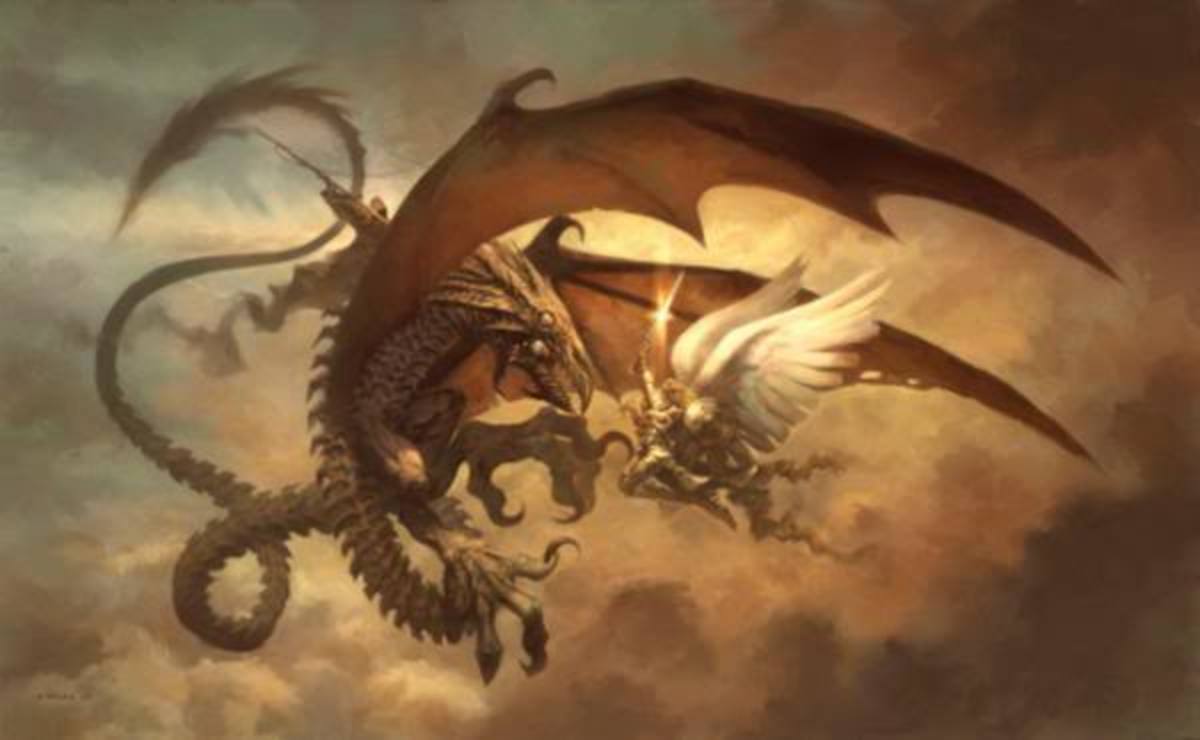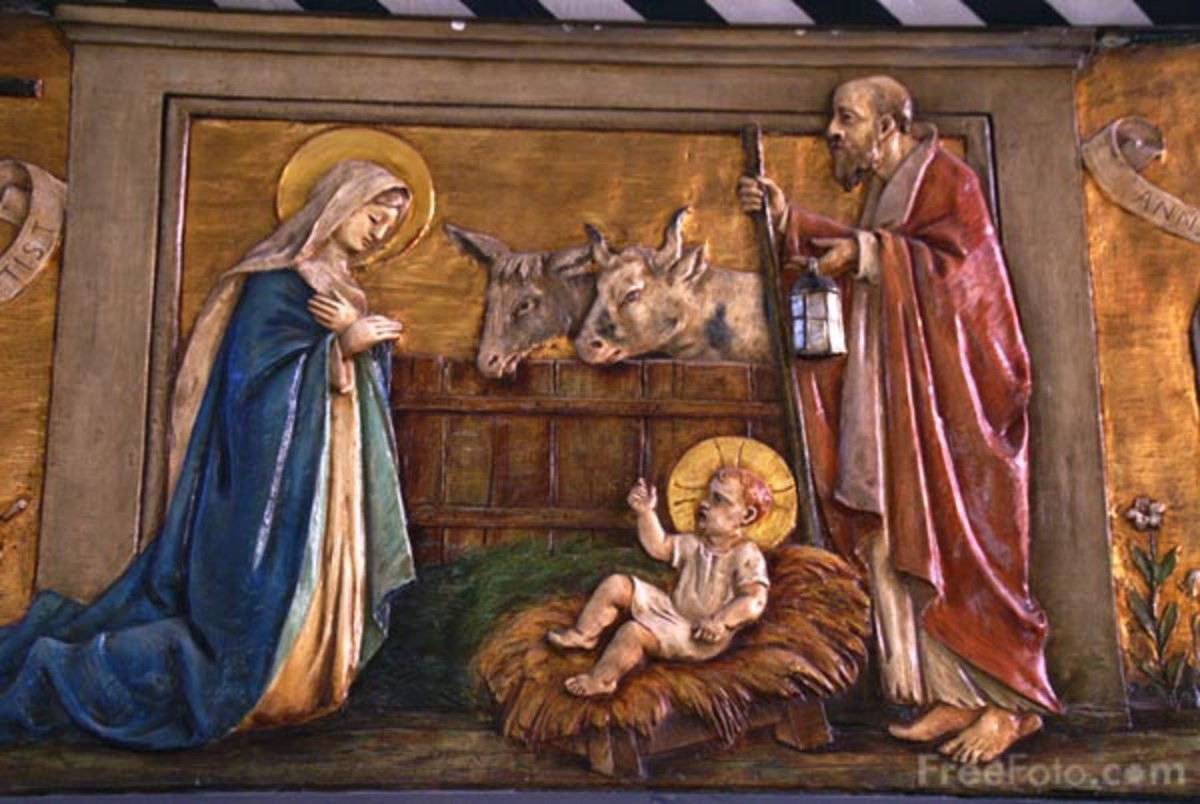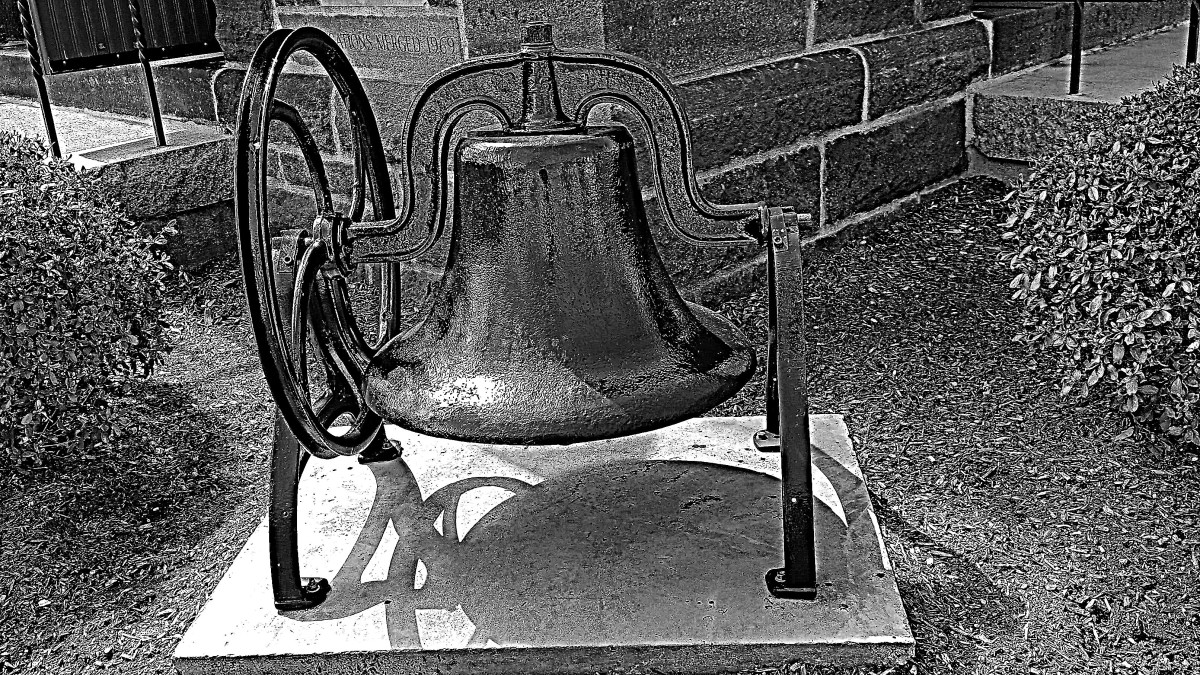God’s Holy Days And The Plan of Salvation; Feast of Trumpets
God’s Holy Days And
The Plan of Salvation;
Feast of Trumpets
24 Speak unto the children of Israel,
saying, In the seventh month, in the first day of the month, shall ye have a
sabbath, a memorial of blowing of trumpets, an holy convocation.
25 Ye shall do no servile work
therein: but ye shall offer an offering made by fire unto the LORD.
(Lev 23: 24-25)
As was mentioned in the introduction Christ fulfilled the first three Holy Days during his life here on Earth. The final four Holy Days or more in line with the theme of this paper is the final steps in God’s plan of salvation still needs to be fulfilled. Whereas in looking at the fulfillment of the first three holy days where we could examine history to see how they were fulfilled with the remainder we do not have that ability. In examining the final Holy Days we must depend more on conjecture in regards as to how they might be resolved. Actually we will simply look and see exactly what act or acts are portrayed in the unfulfilled Holy Days, the specifics we will simply have to wait and see how they will be fulfilled.
An overview of Trumpets
The Feast of Trumpets (Rosh Hashanah) was celebrated at the beginning of the month Tishri, the first month of the civil year. Tishri is the seventh month of the Biblical calendar, and as such parallels the Sabbath as a special and holy time to seek God. The previous month of Elul is the time of preparation just as Friday is the Day of Preparation for Shabbat.
God named the other holidays, Sabbath, Passover, Day of Atonement, etc.; however, this holiday has no name. It’s simply referred to as Yom Teruah (the day of the sounding of the shofar), so it became known as the Feast of Trumpets, A shofar (ram’s horn) is blown during the Feast of Trumpets service. Leviticus 23 calls the blowing of trumpets a memorial but does not say what it is a memorial of.
It is regarded by both Jews and Christians as a memorial of the creation of the world, at which the sons of God shouted for joy (Job 38:7). This holiday was the new year’s day on which the people rejoiced in a grateful remembrance of God’s benefits and implored His blessing for the future year.
The Feast of Trumpets and Day of Atonement (Yom Kippur) are the holiest days of the Jewish year. These ten days are called the Days of Awe or High Holy Days but unlike the other holy days, they do not celebrate a season or historical event.
Themes in Trumpets
The Feast of Trumpets is the first of the fall holidays and usually occurs in September. There are a number of themes in the Feast of Trumpets. The first is that this Feast is also the Jewish New Year. There is little resemblance between the Feast of Trumpets, one of the holiest days of the year, and a typical New Year’s Eve party. It is a celebration of the earth’s physical birthday on Tishri 1, Jewish tradition believes this day is the birthday of the world because the first part of Genesis, Bereishit, “in the beginning,” when changed around, read Aleph b’ Tishri, or “on the first of Tishri.” Therefore the Feast Of Trumpets[1] is known as the birthday of the world (Adapted Chumney 1994).
Tishri is the seventh month of the religious calendar, the first month of the civil calendar. Judaism has several different new years. This is similar to the calendar year starting in January, the new school year starting in September, and many businesses starting fiscal years in July and September. In Judaism, Nisan 1 is the new year for the purpose of counting the reign of kings and months on the calendar. Regardless when the king became ruler, the coronation was on Tishri 1. Elul 1 (in August) is the new year for the tithing of animals. Shevat 15 (in February) is the new year for trees (determining when first fruits can be eaten, etc.), and Tishri 1, the Feast of Trumpets (Rosh Hashanah) is the new year for years.
Another theme of this holiday is that of God’s royalty. The Jewish liturgical tradition has preserved tunes for many of the prayers that aptly accompany what the Chassidim called “Coronation Day.” The shofar, in this light, announces God’s Kingship: With trumpets and sound of cornet [shofar] make a joyful noise before the LORD, the King (Ps. 98:6).
A third theme is that it is a “Day of Judgment”. According to legend God sits in judgment between the New Year and the Day of Atonement over mankind to determine fates for the coming year. This symbolism is drawn upon to great effect by the authors of the liturgical poems written to heighten the prayers of the season. The sages say that destiny — whether financial, physical, or other– is pre-ordained on one day each year for the entire duration of that year (Talmud Rosh Hashanah). It is said that on this day God has three books that are opened. Those who have returned to God are written in the Book of Righteousness. All other people are divided into two groups. The first is the wholly wicked whose names are written in the Book of the Wholly Wicked. The other group are considered intermediates. They are people who have not been judged and have ten more days to repent. If they repent by the Day of Atonement their names will be written in the Book of Righteousness. Hosea 14:1-9 expresses this theme.
The sages of the Jerusalem Talmud (Rosh Hashanah 1:3) say, “Normally, someone standing in judgment would dress somberly, cloaking himself in black robes and not trim his beard. After all, he does not know how it will turn out. Israel is different, though. We dress in white and cloak ourselves in white and trim our beards and eat and drink and are joyous for we know that God will do miracles for us. Being judged by God is at once an awesome thing — He knows all — but He is a merciful God. Even judgment itself need not be devoid of joy (Talmud Rosh Hashanah 1:3).
The Shofar
The shofar is a crucial item in this Feast, it has always had a special place for the Hebrew people. Trumpets were of a great variety of forms, and were made of diverse materials. Some were made of silver (Num. 10:2) and were used only by the priests in announcing the approach of festivals and in giving signals of war. Some were also made of rams’ horns (Josh. 6:8). They were blown at special festivals, and to herald the arrival of special seasons (Lev. 23:24; 25:9, 1 Chron. 15:24, 2 Chron. 29:27, Ps. 81:3 98:6). Trumpets are among the symbols used in the Book of Revelation (Rev. 1:10 8:2) (Bushnell 1995).
There were also specific uses of the shofar. It was sounded to bring Moses to the top of the mountain to receive the Commandments. And when the voice of the trumpet sounded long, and waxed louder and louder, Moses spake, and God answered him by a voice. And the LORD came down upon mount Sinai, on the top of the mount: and the LORD called Moses up to the top of the mount; and Moses went up (Ex. 19:19-20). It was a signal during time of war. And it came to pass, when he was come, that he blew a trumpet in the mountain of Ephraim, and the children of Israel went down with him from the mount, and he before them (Judges 3:27).
It was blown at the start of the Jubilee year. Then shalt thou cause the trumpet of the jubilee to sound on the tenth day of the seventh month, in the day of atonement shall ye make the trumpet sound throughout all your land (Lev. 25:9). It was blown during coronation services of a new King. And let Zadok the priest and Nathan the prophet anoint him there king over Israel: and blow ye with the trumpet, and say, God save king Solomon (1 Kings 1:34).
It is a sign of the regathering of dispersed Israel. And it shall come to pass in that day, that the great trumpet shall be blown, and they shall come which were ready to perish in the land of Assyria, and the outcasts in the land of Egypt, and shall worship the LORD in the holy mount at Jerusalem (Isa. 27:13). It was sounded as a warning of danger. Shall a trumpet be blown in the city, and the people not be afraid… (Amos 3:6).
But the greatest anticipation of all is the day of the arrival of the Messiah. And the LORD shall be seen over them, and his arrow shall go forth as the lightning: and the Lord GOD shall blow the trumpet, and shall go with whirlwinds of the south (Zech. 9:14).
The priest chosen to blow the shofar was trained from childhood. On the first day of this feast, the priest blowing the shofar stood outside the Temple with two trumpeters. The shofar was the signal for the field workers to come into the Temple. The high priest actually stood on the southwestern parapet of the Temple and blew the shofar so it could be heard in the surrounding fields. At that instant the faithful would stop harvesting, even if there were more crops to bring in, and leave immediately for worship service (Levitt 1979, 12).
Christ in Trumpets
The Feast of Trumpets is a major festival. The three major festivals are Passover, Pentecost and Feast of Trumpets. As we have seen earlier we know that Passover portrayed the sacrifice of Christ, Pentecost represents the coming of the Holy Spirit so it stands to reason that the Feast of Trumpets represents a very special event involving us and Christ. The themes of Trumpets all point towards the Day of the Lord; the start of a new year, God’s royalty and Judgment Day.
Judgment Day
Blow ye the trumpet in Zion, and sound an alarm in my holy mountain: let all the inhabitants of the land tremble: for the day of the LORD cometh, for it is nigh at hand;
(Joel 2:1)
I was in the Spirit on the Lord's day,
(Rev 1:10)
1 And when he had opened the seventh seal, there was silence in heaven
about the space of half an hour.
2 And I saw the seven angels
which stood before God; and to them were given seven trumpets.
3 And another angel came and
stood at the altar, having a golden censer; and there was given unto him much
incense, that he should offer it with the prayers of all saints upon the golden
altar which was before the throne.
4 And the smoke of the incense,
which came with the prayers of the saints, ascended up before God out of the
angel's hand.
5 And the angel took the censer,
and filled it with fire of the altar, and cast it into the earth: and there
were voices, and thunderings, and lightnings, and an earthquake.
6 And the seven angels which had
the seven trumpets prepared themselves to sound.
7 The first angel sounded, and
there followed hail and fire mingled with blood, and they were cast upon the
earth: and the third part of trees was burnt up, and all green grass was burnt
up.
8 And the second angel sounded,
and as it were a great mountain burning with fire was cast into the sea: and
the third part of the sea became blood;
9 And the third part of the
creatures which were in the sea, and had life, died; and the third part of the
ships were destroyed.
10 And the third angel sounded,
and there fell a great star from heaven, burning as it were a lamp, and it fell
upon the third part of the rivers, and upon the fountains of waters;
11 And the name of the star is
called Wormwood: and the third part of the waters became wormwood; and many men
died of the waters, because they were made bitter.
12 And the fourth angel sounded,
and the third part of the sun was smitten, and the third part of the moon, and
the third part of the stars; so as the third part of them was darkened, and the
day shone not for a third part of it, and the night likewise.
13 And I beheld, and heard an
angel flying through the midst of heaven, saying with a loud voice, Woe, woe,
woe, to the inhabiters of the earth by reason of the other voices of the
trumpet of the three angels, which are yet to sound!
1 And the fifth angel sounded, and
I saw a star fall from heaven unto the earth: and to him was given the key of
the bottomless pit.
2 And he opened the bottomless
pit; and there arose a smoke out of the pit, as the smoke of a great furnace;
and the sun and the air were darkened by reason of the smoke of the pit.
3 And there came out of the
smoke locusts upon the earth: and unto them was given power, as the scorpions
of the earth have power.
4 And it was commanded them that
they should not hurt the grass of the earth, neither any green thing, neither
any tree; but only those men which have not the seal of God in their foreheads.
5 And to them it was given that
they should not kill them, but that they should be tormented five months: and
their torment was as the torment of a scorpion, when he striketh a man.
6 And in those days shall men
seek death, and shall not find it; and shall desire to die, and death shall
flee from them.
7 And the shapes of the locusts
were like unto horses prepared unto battle; and on their heads were as it were
crowns like gold, and their faces were as the faces of men.
8 And they had hair as the hair
of women, and their teeth were as the teeth of lions.
9 And they had breastplates, as
it were breastplates of iron; and the sound of their wings was as the sound of
chariots of many horses running to battle.
10 And they had tails like unto
scorpions, and there were stings in their tails: and their power was to hurt
men five months.
11 And they had a king over
them, which is the angel of the bottomless pit, whose name in the Hebrew tongue
is Abaddon, but in the Greek tongue hath his name Apollyon.
12 One woe is past; and, behold,
there come two woes more hereafter.
13 And the sixth angel sounded,
and I heard a voice from the four horns of the golden altar which is before
God,
14 Saying to the sixth angel
which had the trumpet, Loose the four angels which are bound in the great river
Euphrates.
15 And the four angels were
loosed, which were prepared for an hour, and a day, and a month, and a year,
for to slay the third part of men.
16 And the number of the army of
the horsemen were two hundred thousand thousand: and I heard the number of
them.
17 And thus I saw the horses in
the vision, and them that sat on them, having breastplates of fire, and of
jacinth, and brimstone: and the heads of the horses were as the heads of lions;
and out of their mouths issued fire and smoke and brimstone.
18 By these three was the third
part of men killed, by the fire, and by the smoke, and by the brimstone, which
issued out of their mouths.
19 For their power is in their
mouth, and in their tails: for their tails were like unto serpents, and had
heads, and with them they do hurt.
20 And the rest of the men which
were not killed by these plagues yet repented not of the works of their hands,
that they should not worship devils, and idols of gold, and silver, and brass,
and stone, and of wood: which neither can see, nor hear, nor walk:
21 Neither repented they of
their murders, nor of their sorceries, nor of their fornication, nor of their
thefts.
(Rev. 8:1-13; 9:1-21)
For the day of the LORD of hosts shall be upon every one that is proud and lofty, and upon every one that is lifted up; and he shall be brought low:
(Isaiah 2:12)
For, behold, the day cometh, that shall burn as an oven; and all the proud, yea, and all that do wickedly, shall be stubble: and the day that cometh shall burn them up, saith the LORD of hosts, that it shall leave them neither root nor branch.
(Malachi 4:1)
15 To execute judgment upon all, and to convince all that are ungodly among them of all their ungodly deeds which they have ungodly committed, and of all their hard speeches which ungodly sinners have spoken against him.
(Jude 1:15)
The royalty of God
A similar theme of both Trumpets and the Day of the Lord is the reestablishment of the Kingdom of God. Not just a reestablishment of the nation of Israel but a worldwide implementation of the Kingdom of God. Currently the world is still under the rulership of Satan but upon the return of Christ his rule shall be ended and Jesus shall assume the throne.
In whom the god of this world hath blinded the minds of them which believe not, lest the light of the glorious gospel of Christ, who is the image of God, should shine unto them.
(2 Corinthians 4:4)
For we wrestle not against flesh and blood, but against principalities, against powers, against the rulers of the darkness of this world, against spiritual wickedness in high places.
(Ephesians 6:12)
Wherein in time past ye walked according to the course of this world, according to the prince of the power of the air, the spirit that now worketh in the children of disobedience:
(Ephesians 2:2)
And before him shall be gathered all nations: and he shall separate them one from another, as a shepherd divideth his sheep from the goats:
(Mat. 25:32)
And hath made us kings and priests unto God and his Father.
(Rev 1:6)
And he that overcometh, and keepeth my works unto the end, to him will I give power over the nations:
(Rev. 2:26)
And the seventh angel sounded; and there were great voices in heaven, saying, The kingdoms of this world are become the kingdoms of our Lord, and of his Christ; and he shall reign for ever and ever.
(Rev 11:15)
[11] And I saw heaven opened, and behold a white horse; and he that
sat upon him was called Faithful and True, and in righteousness he doth judge
and make war.
[12] His eyes were as a flame of
fire, and on his head were many crowns; and he had a name written, that no man
knew, but he himself.
[13] And he was clothed with a
vesture dipped in blood: and his name is called The Word of God.
[14] And the armies which were
in heaven followed him upon white horses, clothed in fine linen, white and
clean.
[15] And out of his mouth goeth
a sharp sword, that with it he should smite the nations: and he shall rule them
with a rod of iron: and he treadeth the winepress of the fierceness and wrath
of Almighty God.
[16] And he hath on his vesture
and on his thigh a name written, KING OF KINGS, AND LORD OF LORDS.
(Rev 19:11-16)
…and they lived and reigned with Christ a thousand years… they shall be priests of God and of Christ, and shall reign with him a thousand years.
(Rev 20:4,6)
Days of Awe
The Feast of Trumpets and Day of Atonement (Yom Kippur) are the holiest days of the Jewish year. The ten days that are between them are called the Days of Awe or High Holy Days. If as we believe that Trumpets depict the prophesied Day of the Lord then it will really be a time of awe as events slated to occur indicate.
The sun shall be turned into darkness, and the moon into blood, before the great and the terrible day of the LORD come
(Joel 2:31)
Shall not the day of the LORD be darkness, and not light? even very dark, and no brightness in it?
(Amos 5:20)
The sun shall be turned into darkness, and the moon into blood, before that great and notable day of the Lord come
(Acts 2:20)
29
Immediately after the tribulation of those days shall the sun be darkened, and
the moon shall not give her light, and the stars shall fall from heaven, and
the powers of the heavens shall be shaken:
30 And then shall appear the
sign of the Son of man in heaven: and then shall all the tribes of the earth
mourn, and they shall see the Son of man coming in the clouds of heaven with
power and great glory.
(Mat. 24:29-30)[2]
The Last Trump
A distinguishing feature of the celebration is the last, climactic blast, the Teki'at Shofar. This is not the usual series of short bursts, signaling alarm or bad news. Rather, it is a long blast, signaling victory or good news. And it is this sounding of the last trump on the Day of the Lord that truly does signal victory and good news!
And he shall send his angels with a great sound of a trumpet, and they shall gather together his elect from the four winds, from one end of heaven to the other.
(Mat. 24:31)
In a moment, in the twinkling of an eye, at the last trump: for the trumpet shall sound, and the dead shall be raised incorruptible, and we shall be changed.
(1 Cor. 15:52)
Endnotes
[1] Translated from the Hebrew, Rosh Hashanah means "head of the year" - rosh means head, while hashanah means year
[2] See also Rev 16:1-14, 18, 21

